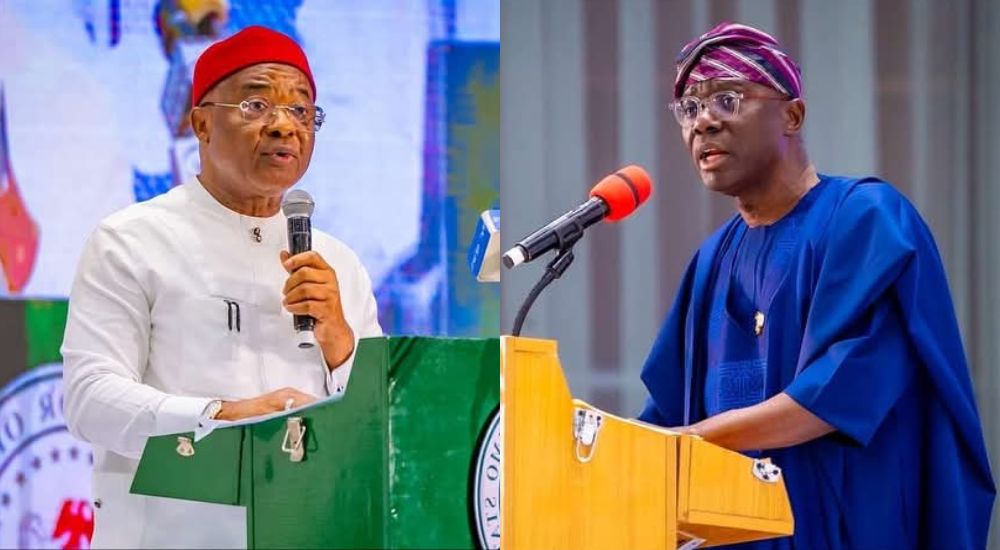Sanwo-Olu, Uzodimma Seek Constitutional Role For Traditional Rulers
Traditional rulers from across Nigeria have renewed calls for the constitutional recognition of traditional institutions to strengthen their role in governance and national stability.
This was the highlight of a two-day national executive committee meeting of the National Council of Traditional Rulers of Nigeria (NCTRN), which began on Monday in Lagos.
The meeting, held in Victoria Island, was declared open by President Bola Tinubu, who was represented by the Governor of Imo State, Hope Uzodimma.
The gathering, themed “The Traditional Institution: The Imperative of its Inclusion in Effective and Efficient Governance in Nigeria,” was convened by the council’s co-chairmen — the Sultan of Sokoto, Alhaji Muhammadu Sa’ad Abubakar III, and the Ooni of Ife, Oba Adeyeye Ogunwusi.
It brought together monarchs, governors, and senior government officials to discuss the evolving role of traditional authorities in nation-building.
Hosting the meeting, Governor Babajide Sanwo-Olu of Lagos State described traditional rulers as a vital link between government and the people, emphasising their importance in conflict resolution and community development.
Advertisement
“I advise that our traditional rulers continue to push for more constitutionally-backed relevance. This is the right thing to do, and we promise to support this push because we believe we need to tap from the experience and wisdom of our traditional rulers to make more progress,” Sanwo-Olu said.
“When traditional leaders are clearly woven into our governance framework, their authority can become a valuable asset for fostering peace, resolving conflicts and driving community development. As our nation grapples with complex social, economic, and security issues, it is crucial that we tap into the wisdom and influence of our royal fathers in a coordinated and structured way.”
Sanwo-Olu lamented that the traditional institution lost constitutional backing during the military era, which, he said, weakened their formal influence despite their enduring relevance at the grassroots.
Uzodimma, who also serves as the Chairman of the Progressive Governors Forum, echoed similar sentiments, noting that traditional rulers once held defined constitutional roles under the 1963 Republican Constitution.
“We must stop pretending that the absence of a constitutional role means an absence of function. I can tell you today without fear of equivocation that your relevance is not in question, was never in doubt and would never be in doubt. What is questionable is the failure of the system to give legal backing to a role it already depends on,” Uzodimma said.
Advertisement
He argued that recognizing traditional institutions in law would not create new functions but would legitimize their existing roles in governance and community peacekeeping.
The Sultan of Sokoto, in his remarks, said the meeting was convened to strengthen unity and peaceful coexistence across Nigeria’s diverse ethnic and cultural groups.
He urged traditional rulers to remain steadfast in supporting government initiatives that promote peace and development.
The Ooni of Ife, Oba Adeyeye Ogunwusi, called for a review of laws that place traditional rulers under local government chairmen, saying such provisions undermine their authority and diminish their historical status.
Also speaking, the Etsu Nupe, Alhaji Yahaya Abubakar, who chaired the meeting’s coordinating committee, said traditional institutions remained an enduring symbol of moral authority and a foundation for community harmony.
The event was attended by nine governors, including Abdulrahman AbdulRazaq of Kwara State, who chairs the Nigeria Governors Forum (NGF).

